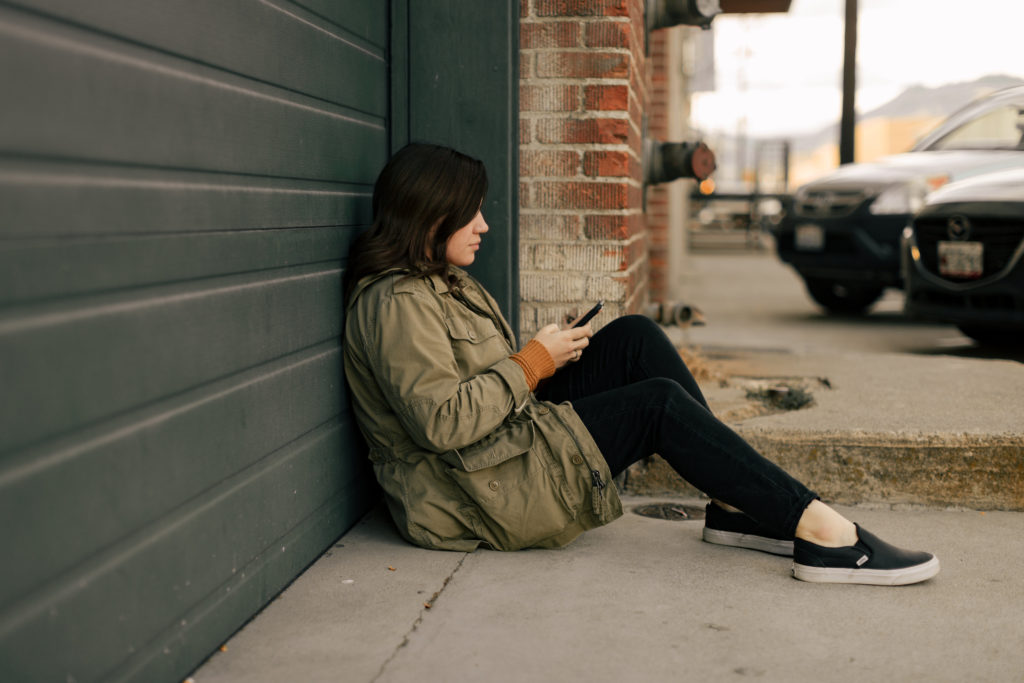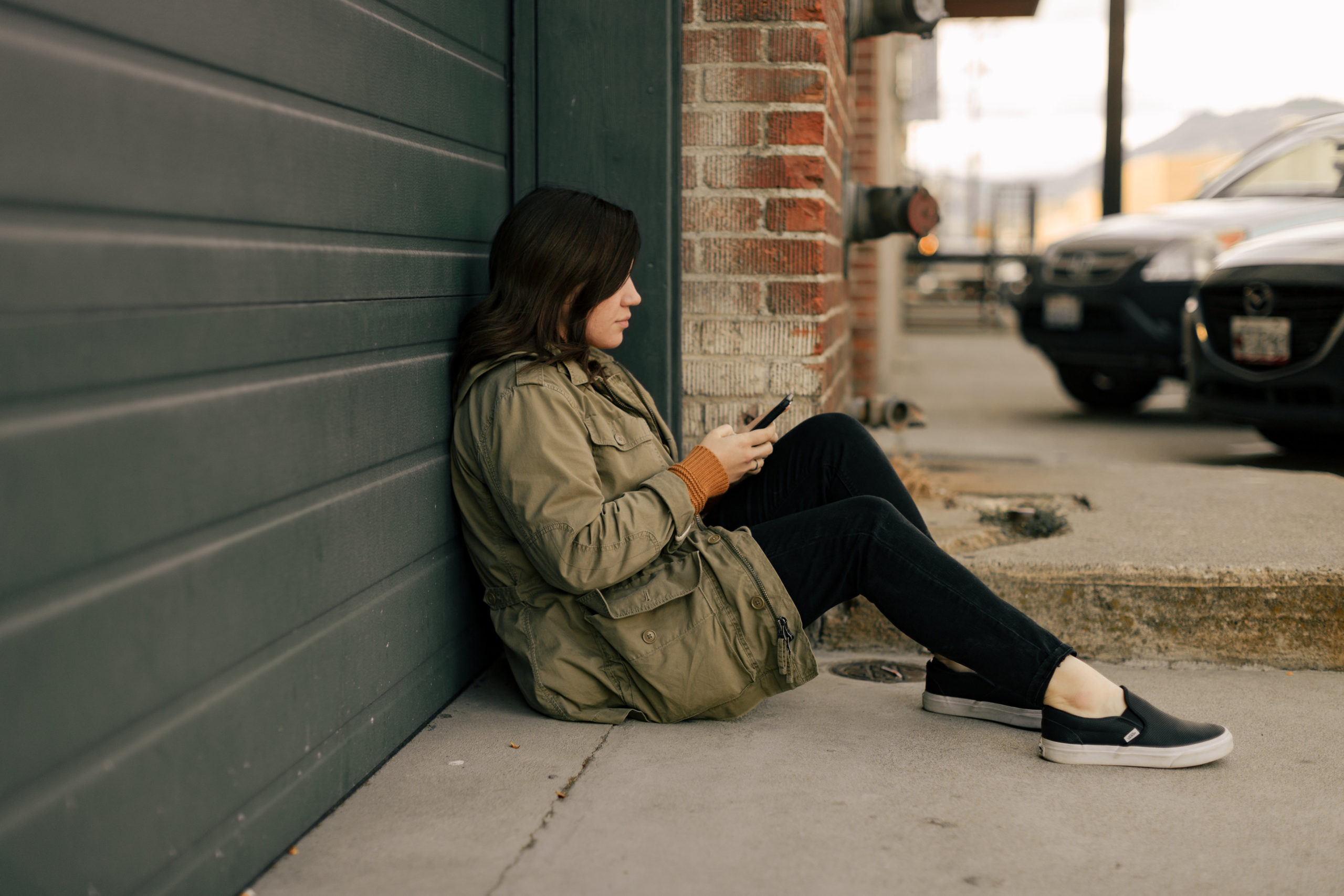“We are continually being nudged by our devices toward a set of choices. The question is whether those choices are leading us to the life we actually want.” – Andy Crouch

In 2019, Americans averaged 3 hours and 30 minutes on their phones per day, increasing 30 minutes from 2018.
Also, in 2019, reported loneliness rose 13% from the year before, making an average 3 out of 5 lonely adults.
Phone activity increased, but so did loneliness.
I hear people often say that they are thankful for technology and social media because it keeps them connected to people that they may have normally lost touch with. But we don’t seem to be using our phones much for connection.
How often do you scroll Instagram or play a game on your phone versus have a text or phone conversation with someone? I bet the balance is way off. I know that mine is. My daily phone usage reflects social media, games and shopping. And then maybe I have an hour or two per WEEK for connecting with people. It takes only 7 seconds to reach out to someone and send a text message.
How do you want your life to be and how does your phone usage aid or hinder that life? Are you longing for connection and feeling lonely, but spend hours looking at surface level lives on Instagram? The solution seems obvious, right? Just reach out more to people and we’ll feel more connected. But we already know this. So why aren’t we doing it?

Let’s talk about the concept of numbing. Life is hard. We deal with mental illnesses, relationship strains, work difficulties, etc. We get overwhelmed, we get sad, we get anxious and what do we want to do? We want to go numb. We want to stop feeling and worrying and stressing. We don’t want to be vulnerable about our feelings, we don’t want to be vulnerable with others and we don’t want to put in the effort it will take to face the stuff in our lives.
Technology has created the perfect numbing solution. It has billions of distractions – all in the device in your hand. Yes, our phones can create more connection, but why put in that effort when it is so much easier to go numb and check out with all the content available.
How is that working out for us? We are just getting lonelier! Numbing is a temporary symptom management, but it is not a long-term solution. Whatever we are dealing with is only piling up higher when we don’t address it. I tell my clients who have trauma that if they ignore their trauma and sweep it under the rug, that wound will fester and only get worse. But to work through the trauma and face it – it hurts more in the moment, but it leads to true, long-term healing.
It takes strength – strength and bravery – to be vulnerable and admit that you might be struggling. It also takes strength to reach out to someone else and offer to be an emotional support for whatever they are going through. It is scary and uncomfortable. But the most rewarding relationships are when two people are vulnerable with each other. I feel most fulfilled and connected to someone when I open up to them and share what I’m really facing and they in turn are vulnerable with me. We enter into a safe space and I feel my soul being refilled.

Brene Brown puts it this way, “vulnerability is the birthplace of love, belonging, joy, courage, empathy, and creativity. It is the source of hope, empathy, accountability, and authenticity. If we want greater clarity in our purpose or deeper and more meaningful spiritual lives, vulnerability is the path.”
What will you do with the choices presented by your phone? Will you only numb out and distract yourself from your emotions? Or will some of your choices be to reach out to others? Try choosing connection a little more and watch what a difference it’ll make. Being vulnerable isn’t weak. It shows incredible strength. It takes only 7 seconds.
by: Taylen Gilden
Taylen is a licensed Mental Health Counselor. She sees the impact of isolation and mental health every day and believes that vulnerability and community are two of the most powerful tools for healing. She believes that every person’s story matters and every person deserves to be seen and heard.

View comments
+ Leave a comment